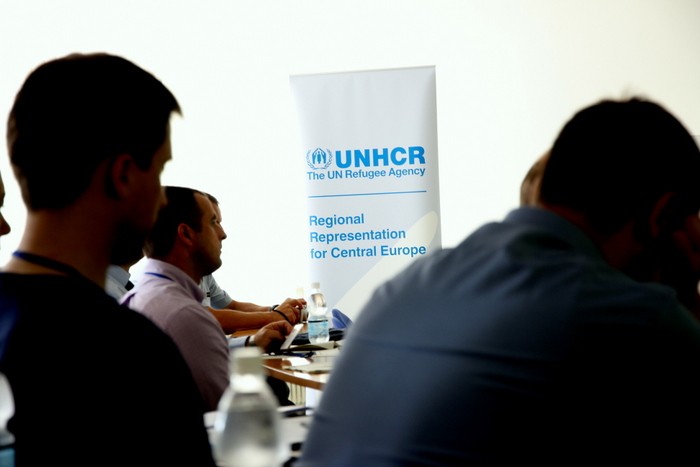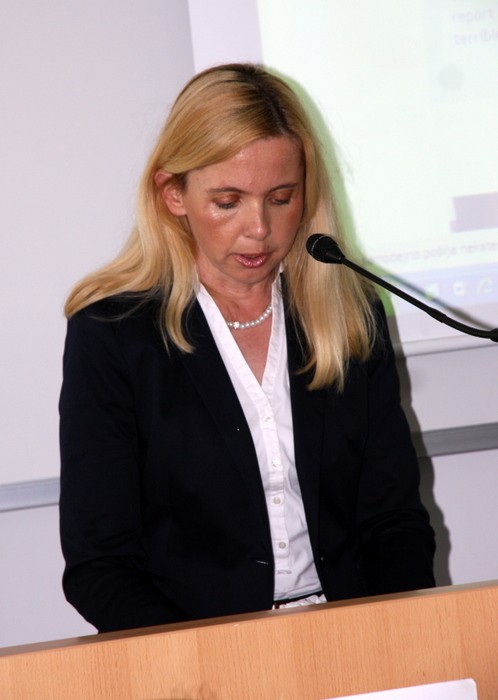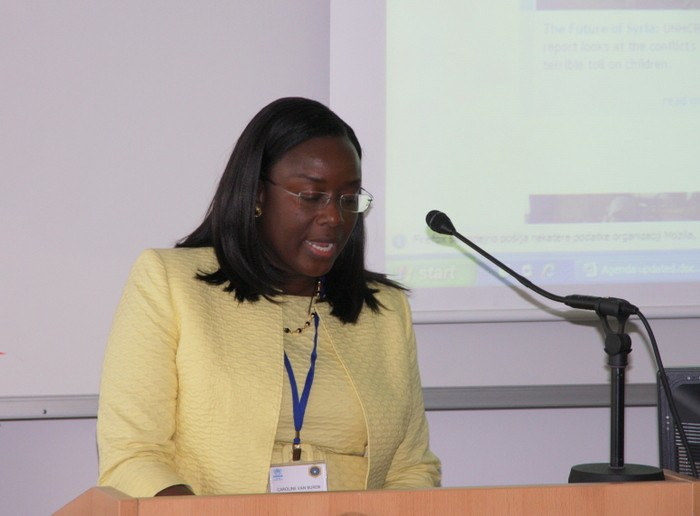Between 9 and 12 June 2014, Police Academy hosted the third UNHCR workshop concerning border management and the protection of applicants for international protection and refugees.
The workshop was attended by border police and other officers from twelve countries, who enhanced their knowledge and shared experience. It was designed to teach the participants to be able to distinguish the mandates, roles and responsibilities of different actors in the field of migration, and to better manage intercultural communication and identify persons in need of protection.
The workshop was attended by experts from Hungary, Bulgaria, Slovakia, Romania, Croatia, Poland, Bosnia and Herzegovina, Kosovo, Macedonia, Moldova, Ukraine and Slovenia.
The aim of the training was to gain theoretical and practical knowledge. On the last day, the participants visited the Asylum Home in Ljubljana and Centre for Foreigners in Postojna, where they could view the accommodation facilities and treatment of persons staying there.
Both Deputy Director General of the Police Tatjana Bobnar and UNHCR Deputy Regional Representative for Central Europe Caroline Van Buren underlined the importance of such workshops for mutual cooperation and better performance of work and wished the participants successful work.
Tatjana Bobnar said:
"Migration management remains one of the major issues that require special attention. We should never forget that freedom of movement, exercised in migration is one of the fundamental human rights. Migration fuels cultural and economic development and is an integral part of human life. We have to keep in mind that migration is a foundation for progress in general."
"Much more attention is paid to migration flows of people in distress. Events happening in recent years and the development of crisis situations, especially in countries of the Middle East and Northern Africa raise attention to protect the needs of people on the move. We strongly believe that this is the area where mandates of UNHCR and Border Police meet. Migration management is a much broader concept, but respective institutions are placed into it as very important stakeholders."
In her speech, Caroline Van Buren emphasised as follows:
"All participating countries present here have vast borders with numerous entry points, both official and unofficial, by land, sea and air. These borders can be difficult to manage, with governments tasked to not only facilitate the legal movement of goods and people, but also to prevent and respond to potential cross-border criminal activities, such as human trafficking, smuggling and terrorism. In undertaking these efforts, States are obliged to ensure that international protection standards are maintained and that persons in need of protection can effectively access the territory."
"It is recognised that in many cases refugees and migrants travel together and use the same routes and employ the same smugglers and equally become victims of exploitation. This makes it difficult for States to identify those in need of international protection. Growing security concerns make the effective control of border, a duty and an urgent priority for State authorities."
Participants will be able:
- to strengthen their knowledge and understanding of the specific situations faced by people in need of international protection and other forms of protection, including related age, gender and cultural aspects.
- to distinguish the mandates, roles and responsibilities of different actors in the field of mixed migrations.
- to identify persons with special needs, including potential asylum seekers, requiring referral to appropriate services, in co-ordination with relevant partners.
- to improve understanding and management intercultural communication (verbal and nonverbal) and make, where relevant, appropriate use of interpreters.
- to apply cultural, age and gender sensitive approaches and attitudes in day to day contacts with persons arriving at the border, in full compliance with international law and standards.
- to improve the knowledge and understanding of matters relating to managing the borders, in particular the challenges faced when dealing with mixed migrations.
The workshop was organised by the UNHCR Regional Representative for Central Europe on the basis of an agreement with the Uniformed Police Directorate and Police Academy.




